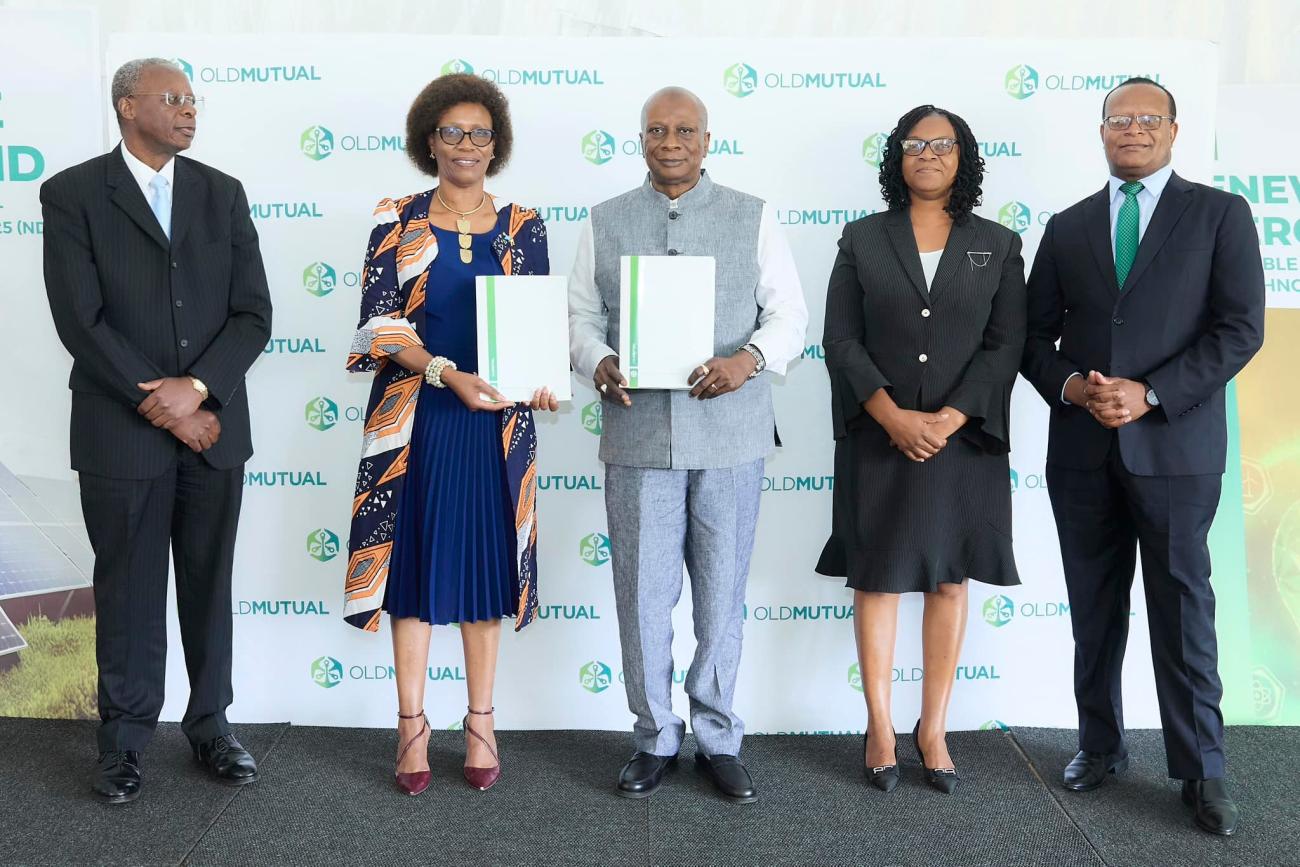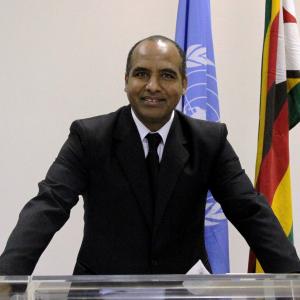20 September 2024, Harare - Zimbabwe launched the Renewable Energy Fund (REF) at the Old Mutual Gardens. This significant initiative is designed to overhaul the nation's energy infrastructure and address climate change challenges. It represents a collaborative effort among the government, the private sector, and the United Nations, aimed at mitigating Zimbabwe’s energy shortfalls while advancing the Sustainable Development Goals (SDGs).
Mr. Edward Kallon, UN Resident and Humanitarian Coordinator, underscored the REF's critical role in addressing climate change and accelerating sustainable development. "The initiative goes beyond resolving energy needs in Zimbabwe; it is a catalyst for economic transformation and resilience," he said.
Initially financed with US$10 million from the global Join UN Sustainable Development Fund and managed by Old Mutual, the fund has grown into a robust US$45 million blend of resources focused on increasing renewable energy capacity from 142 megawatts (MW) to over 2,000 MW by 2030, in line with the global climate goals articulated in the Paris Agreement.
With a national electrification rate of only 44%, Zimbabwe is grappling with considerable challenges, especially in rural areas where the scarcity of electricity stymies economic development and exacerbates socioeconomic inequality.
The REF seeks to remove these obstacles by leveraging an innovative blended finance model that integrates public and private investments to strengthen renewable energy initiatives and empower local entrepreneurs.
Samuel Matsekete, the CEO of Old Mutual Group, highlighted the promise of renewable energy as both a sound investment and a moral obligation. “The REF is at the intersection of innovation and collaboration, dedicated to achieving sustainable returns while fulfilling social and environmental responsibilities," he said. The fund will focus on projects that are inclusive of gender and positive for the climate, pushing forward SDGs 5 and 13.
The success of this initiative relies on collective participation, positioning the Renewable Energy Fund not just as a commercial system but as a profound moral and social responsibility. When viewed as an investment with the added benefit of being clean and renewable, energy as a commodity becomes even more appealing.
Mr. Matsekete announced, “We are proud to introduce the Old Mutual Renewable Energy Fund, with aspirations to grow the capital to US$100 million for investments in renewable energy. This fund offers sustainable asset returns and serves as a conduit for investors dedicated to sustainability.”
Investing in renewable energy provides not only immediate solutions for sustainable power but also paves the way towards a resilient future. The invitation is open for partnerships with investors, stakeholders, and innovators who share the vision of a sustainable future.
Together, we can establish a strong renewable energy ecosystem that benefits the economy and the environment alike.
Noting that the joint commitment ensures that every REF investment is financially viable, socially just, and environmentally responsible, aligning with our strategic goal of integrating sustainability into business practices, Mr Matsekete said, “the Fund also serves as a platform for innovation and collaboration. As we start this venture, let us explore Zimbabwe's potential in renewable energy, generating employment and supporting communities.”
Dr. Gloria Magombo, Permanent Secretary of Energy and Power Development, highlighted the government's supportive stance, noting the coordination among various government Ministries and international bodies. "Our goal is universal access to modern energy by 2030; the REF is a crucial component in our path towards energy independence," she stated. Zimbabwe’s current dependence on coal-fired power is inadequate, leading to imports that strain the economy and its consumers.
The $45 million REF will finance projects across the country, focusing on off-grid regions to boost renewables to 26.5% of the energy mix by 2030, thereby enhancing stability in access and reducing reliance on imports. The fund aligns with international climate aims, answering calls from Climate Change Conferences (COP) for greater investment in adaptation and mitigation.
The launch of the REF highlights the power of partnerships, featuring collaborations with UN agencies such as UNCDF, UNDP, UNESCO, UN Women, and local financial bodies, embodying a "Whole of Government and Society Approach" as promoted by Zimbabwe’s government. This initiative demonstrates how strategic public-private partnerships can be leveraged to drive transformative advances in the energy sector.
As REF operations commence and projects unfold, this initiative promises to reinvent Zimbabwe’s energy future, promoting both economic growth and environmental sustainability. Stakeholders are encouraged to support and invest, positioning the REF as a foundational element for Zimbabwe's greener future.
As Zimbabwe begins this transformative journey, the Government of Zimbabwe and REF partners call on all stakeholders to prioritize both people and the planet, aspiring to achieve universal energy access by 2030 and to build a resilient energy ecosystem for future generations.







